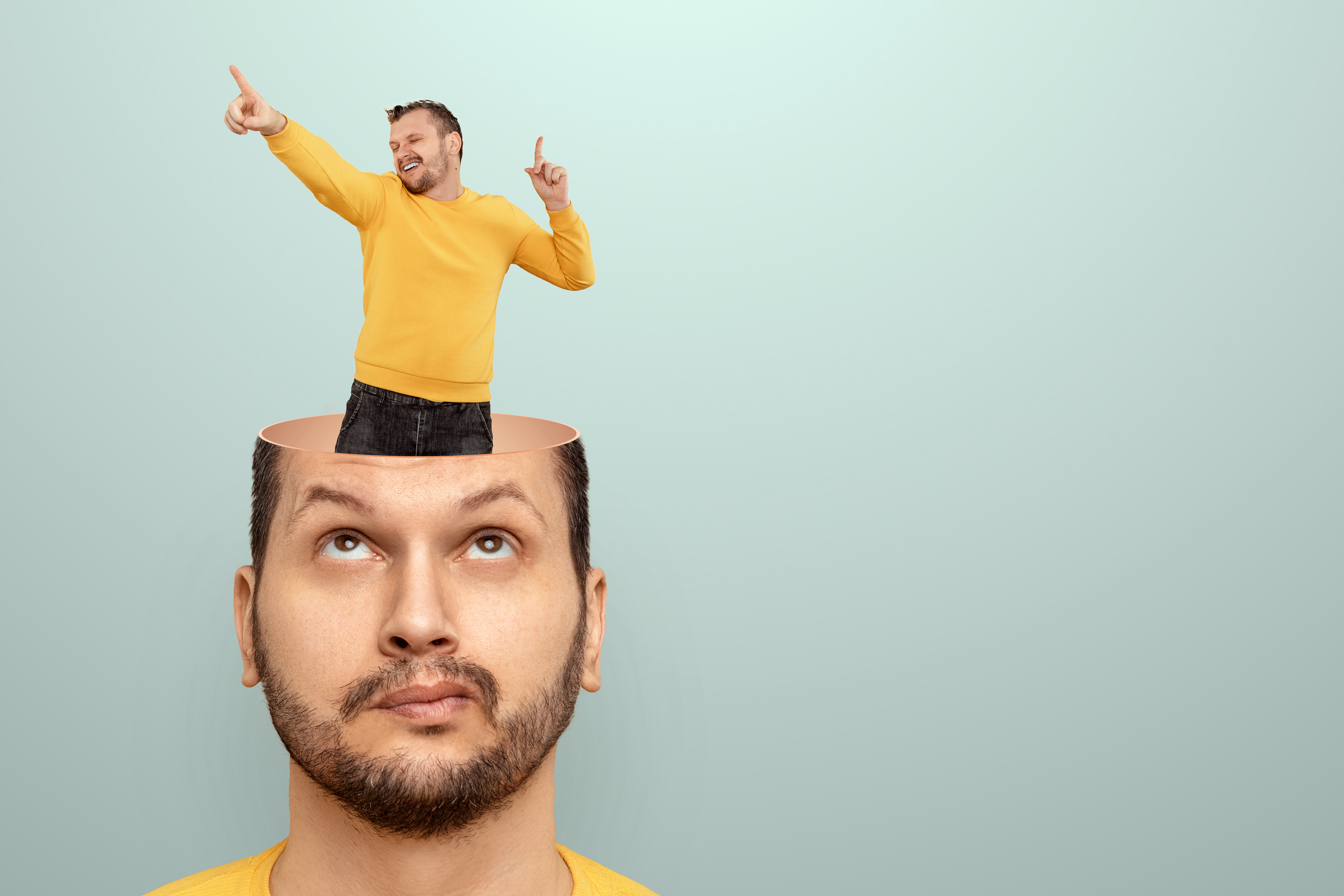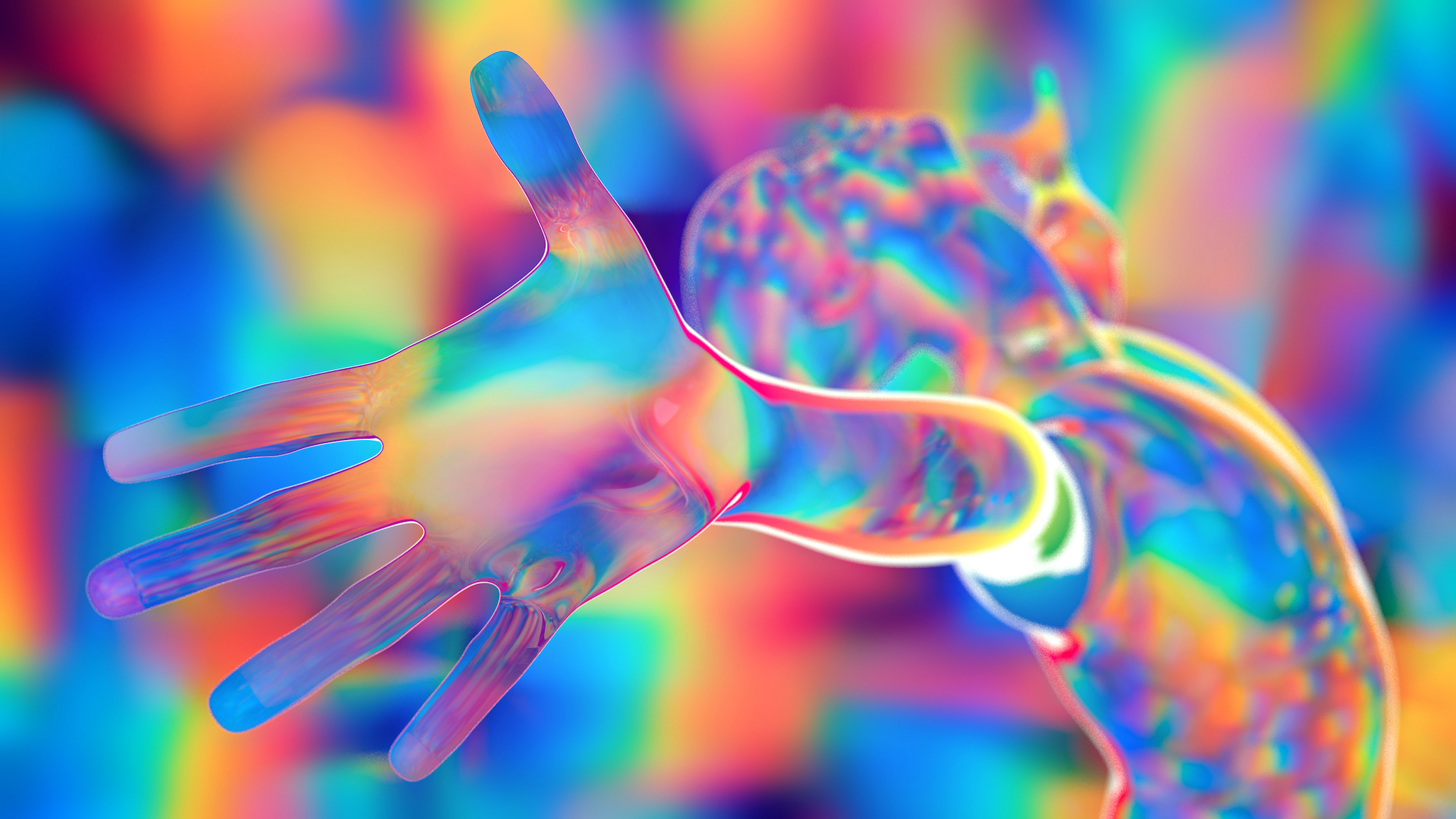

By Reef Karim
October 19, 2021
Disclaimer: If you get turned on by science talk, you’re going to enjoy this article.
Although they seem similar, pleasure, happiness and joy are completely different states of mind.
Knowing the difference between them can completely transform your life.
I get it. Pleasure, Happiness, Joy… all appear desirable.
They are a state of mind, seem positive, and can help overcome, manage or distract us from our daily struggles.
But they are so different.
Let’s take a deep dive into all three and do a little analyzing.
Pleasure
Pleasure is such a great word.
What do you immediately think of when you hear the word pleasure?
Wild Sex? Shopping Sprees? Doughnuts…
The human in me thinks of all three. No, not at the same time. Is that even possible?
The nerd scientist in me thinks of the ventral tegmentum, nucleus accumbens and pre-frontal cortex; also known as the reward circuitry or pleasure circuit.

And now a moment of science…
We all have a reward circuitry in our brain and it serves a pretty important role; our survival.
Spikes of the neurotransmitter dopamine dominates this neural circuit that rewards and reinforces certain behaviors like eating (when we’re hungry), drinking water (when we’re thirsty), having sex (to procreate and grow our species) and raise our young.
Yup, it feels good when we eat, drink, get some action and raise our young because these are all natural rewards; it’s evolutionary neurobiology; our brains are primed for our survival.
Sounds great, right?
Except other stuff can hijack and alter this natural pleasure center and cause us all sorts of problems.
You know what I’m talking about.
Illicit drugs, prescription pills, drinking, gambling, porn, video games, addictions, impulse control disorders; they can light up our reward circuitry like the fourth of July.
And that’s the thing about pleasure; it can be a good thing or a bad thing.
Since we have biological hardware for pleasure, our need for certain pleasurable acts is strong, but it can also be momentary, short lived and connected to active sensory stimulation (our five senses).
Pleasure primarily comes from a variety of external sources (food, sugar, music, gaming, money, sports, music, shopping, gambling, a relationship, a desired person, and lots of other stimuli).
Including one big source of stimuli… social media.

Yes, neuroimaging research reveals social media, particularly self-revelatory posting, gives a nice little dopamine kick to your reward circuitry. Both the anticipation of, and receiving of “likes and views”, can continue to prime dopaminergic tone.
Duration is usually an issue with pleasure because when your senses stop being stimulated, the pleasure goes away.
You may remember the moment for a while but eventually it loses its luster.
When you think of pleasure, think of external stimuli, the reward circuitry, a shorter duration and both good and bad outcomes.
Happiness
It seems like every self-help program and corporate campaign focuses on being “happy”.
Buy these (insert consumerism item here) and be happy.
Shoes. Jewelry. Phones. Purses. Computers. Watches. Cars. Houses. Books. Courses.
If you could only do this, (insert action phrase), you’ll be happy.
So, what is happiness?
And how do we get it?
Most research reveals happiness to be a state of mind dependent on an outcome.
The feeling of happiness persists as long as the result that elicits the happiness is present.
Make some money, be happy.
Get a degree, be happy.
Get that new job, be happy.
Get that cool car, be happy.
Get a new puppy, be happy.
Get a new relationship, be happy.
Volunteer, be happy.
Happiness doesn’t just show up in your life randomly; it’s usually connected to an event in your life that elicits this appealing state of mind.

This appealing state of mind is an internal process, but it’s catalyzed by external events.
Money can’t buy you happiness but one study (Kahneman, Deaton) looking at the connection between money and happiness found that making up to 75k can elicit more emotional well-being, but after that amount, continued happiness involves other things besides money.
One expert described happiness as a state “resultant of goals being met” that is eventually displaced by other desires of the mind. They believe happiness doesn’t usually last.
I personally see happiness as a time limited state of mind that has staying power if you’re aligned with your passion and purpose, and have developed the emotional resilience to deal with life’s ongoing challenges (so you don’t lose this state when a new challenge pops up)
But happiness can fade or disappear altogether when obstacles and challenges build up beyond your ability to manage them; these challenges may erode your optimism over time.
And now, a moment of science…
A happy brain is more plastic and open to change than an unhappy or depressed brain.
Neuroscientist Richard Davidson found regions of the prefrontal cortex associated with happy states and other regions of the prefrontal cortex associated with unhappy states.
These specific regions, in subjects with high electrical activity in the happiness regions, revealed individuals as being more able to notice and appreciate positive experiences, being more active in meeting life’s challenges and better able to avoid or manage difficult emotions.
Neuroimaging research reveals left frontal activity during states of happiness.

You can surmise that neurotransmission agents: serotonin (mood), oxytocin (connection) and possibly endorphins, GABA and glutamate could all be connected to happiness.
Now let’s talk about the behavior of happiness.
Acts that promote empathy, connection and service are linked to elevated states of happiness.
In the Harvard Study of Adult Development, Robert Waldinger concluded that close relationships, more than money or fame, were what kept people happy throughout their lives.
The relationship ties seem to protect people from life’s challenges, delay their mental and physical decline and are better predictors of a happy life than social class, genes or IQ.
Hmmmm.
Thus, it would appear happiness is a very good thing, but not always a consistent thing, and it often shows up with a dependency on our current environment and circumstances.
The good news is we can change our circumstances, environment and culture to be more connected to a state of happiness.
But, this begs the question, is it possible to feel good from the inside out, without any stimuli?
Here it comes… ready?
Joy
Let’s talk about that three-letter word that seems so complex and ambiguous.
At least to me.
I never really understood the word joy; it seemed so “cheesy” and in my scientific and pleasure seeking world, nobody used that word.
Whenever I imagined joy, I pictured a bunch of hippies, running barefoot on the beach, playing with colorful kites, holding hugs way too long, always saying everything was so “wonderful”.
Is there a gag emoji?
The concept of joy just seemed so fake. Like it can’t be real.
One of my only joyful friends, who I considered “joy light” (not quite a joy person but almost) once said this phrase to me…
I think you might be joy deficient.
And I’m like, joy deficient? What the heck is joy deficient?

And now a moment of psychology.
I realized later, my unconscious programming which led to decades of living an unexplored life, (translation – living a life of conformity and fear) pulled me further away from even considering a state of mind where we could feel energized, connected, peaceful and excited all at the same time.
Yup, joy does exist, but my lifestyle wasn’t conducive with finding it or even considering it.
I was all about the science, going out a lot, pleasure seeking; which expels energy instead of amplifying it.
When we are active in our behaviors to numb out or escape, joy is nowhere to be found.
So what brings us this coveted state of joy and how do you describe it?
An authentic state of mind, devoid of mental clutter, where permission is granted to feel more connected and aligned to yourself and others without expectation or impression management.
An intrinsic, giving, energetic state that grows within and is not attached to an outcome or change in environment. When you feel joy, you feel joy regardless of where you are.
Who doesn’t want that?
Archarya Prashant, the Indian author, said:
“Joy is not a movement from pain to pleasure. Joy is freedom from both pain and pleasure”
It’s the absence of drama and unnecessary stimuli and a continued connection to the deeper state of others.
You could call joy “spiritual happiness”. An internal state that can be applied to any situation.

My practical analysis of joy, and what I continue to work on, includes the development of courage for authentic self-expression, humor, optimism, originality, creativity and connection.
There are joy experts out in the world.
I recently met Radha Agrawal who started Daybreaker and we had the opportunity to talk about the science, spirituality and dance/music elements of joy. Love what she’s doing.
As a dancer who’s musically inclined, I totally get the daybreaker concept.
And now a little science…
The neurotransmission experience of a live event focused on joy would include:
- Dopamine (music, lights, rewards, inspiration)
- Endorphins (play, dance, movement)
- Oxytocin (hugging, connection, collective presence)
- Serotonin (kindness, gratitude, mood elevation, optimism)
And I believe there is a glutamatergic and GABA effect as well.
After shifting my life from mental clutter and escapism behaviors to more authenticity, expression and connection, I feel one step closer to joy.
Personally, when I write and shoot a comedic sketch, express myself without fear, create something new, volunteer, and help people, I feel the energy and it continues to grow.
Some thoughts for any joy seekers out there…
People who dismiss joy have never felt joy.
If you are living a life of conformity, you won’t find joy.
Mental clutter needs to be cleared out before you have the mental room for joy.
Self-Sabotage & Escapism behaviors happen when your focus is pleasure instead of joy.
If you grew up conditioned to not feel joy or happiness, you need to change perspective.
I hope we can all find joy, instead of relying on pleasure, or even state dependent happiness, as we navigate through this life.
Joy isn’t just reserved for kite flying hippies running barefoot on the beach…
It’s for the rest of us as well.
Wrapping-up...
So that’s a wrap on Joy.
What does Joy feel like to you?
How do you distinguish pleasure, joy and happiness?
What’s your biggest take away?
Comment below and let me know!
- Reef
